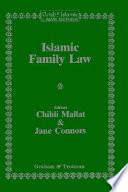
Rule of Law, Islam, and Constitutional Politics in Egypt and Iran, The
A comparative analysis of the ways in which Islam has become entangled with the process of democratization in both Egypt & Iran, authoritarian regimes that have faced increasing demands for reform.
- ISBN 13 : 1438445989
- ISBN 10 : 9781438445984
- Judul : Rule of Law, Islam, and Constitutional Politics in Egypt and Iran, The
- Pengarang : Said Amir Arjomand, Nathan J. Brown, Nathan J. Brown, Nathan J. Brown, Nathan J. Brown, Nathan J. Brown, Nathan J. Brown, Nathan J. Brown, Nathan J. Brown, Nathan J. Brown, Nathan J. Brown, Nathan J. Brown, Nathan J. Brown, Nathan J. Brown, Nathan J. Brown, Nathan J. Brown, Nathan J. Brown, Nathan J. Brown, Nathan J. Brown,
- Kategori : Law
- Penerbit : SUNY Press
- Bahasa : en
- Tahun : 2013
- Halaman : 338
- Google Book : https://play.google.com/store/books/details?id=S31f-bwgkDQC&source=gbs_api
-
Ketersediaan :
Islam. in. Egypt's. Cacophonous. Constitutional. Order. Nathan. ]. Brown. In
previous writings, I explored the origin of Egypt's constitutional texts as well as
the way that one important body—the Supreme Constitutional Court—has
interpreted ...









